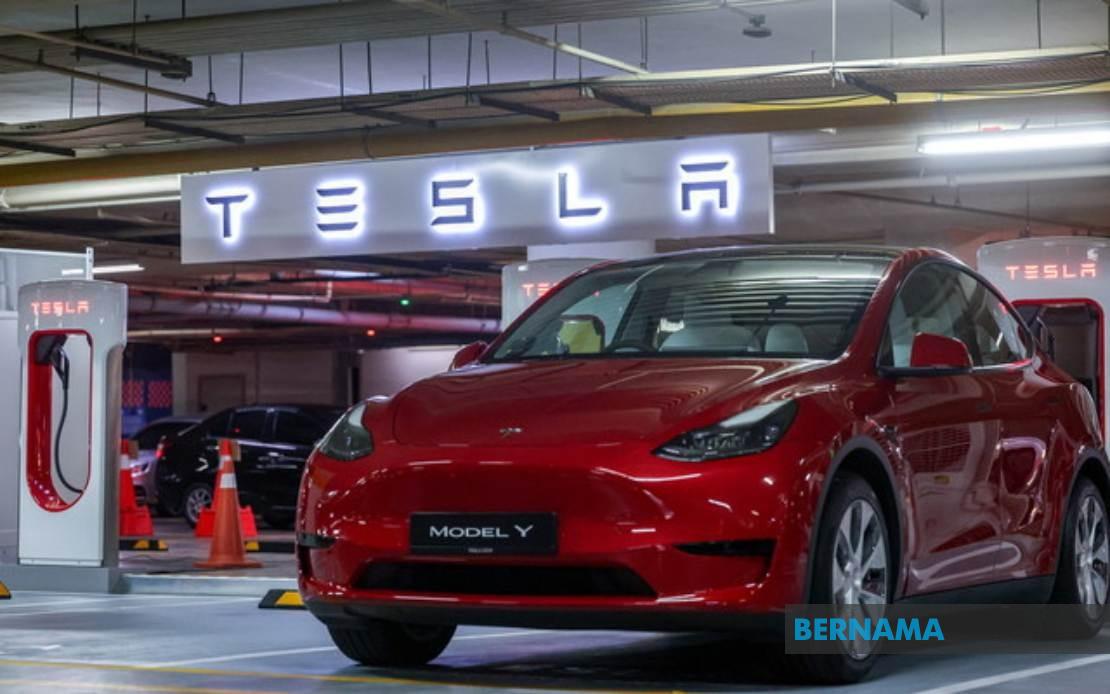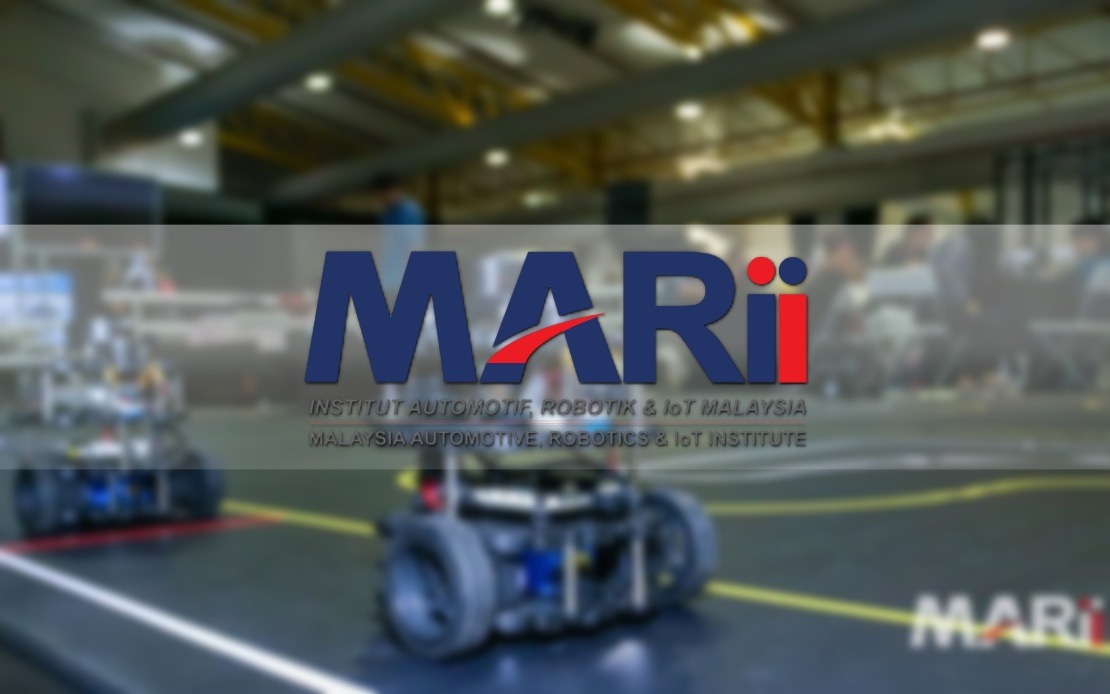News
Marii Aims To Make Malaysia Green Technology, Clean Energy Hub
By Mikhail Raj Abdullah
KUALA LUMPUR, July 26 (Bernama) -- The Malaysia Automotive, Robotics and IoT Institute (MARii) aims to join hands with United States (US) electric vehicle (EV) maker Tesla and other industry stakeholders to transform Malaysia into a hub for green technology and clean energy innovation.
Tesla's expertise in EV technology, autonomous driving and sustainable manufacturing practices presents an unparalleled opportunity for knowledge transfer and skills development within Malaysia, said MARii deputy chief executive officer (CEO) Nizmar Mohd Nazar.
He said Malaysia's low carbon mobility blueprint and National Energy Policy would drive the transition to green technology and clean energy, and lauded Elon Musk, Tesla CEO's commitment to Prime Minister Datuk Seri Anwar Ibrahim to invest in the country during their virtual meeting on July 14.
“Tesla's investments and operations in Malaysia have the potential to catalyse the adoption of EVs and renewable energy solutions, aligning with the country's broader clean energy objectives and its commitment to reducing carbon emissions," he said during his interview on Bernama TV’s 'The Brief’ programme recently.
Nizmar is optimistic that the strategic direction and initiatives outlined in Malaysia's green technology and clean energy policy documents would strengthen the impact of Tesla's presence and investment in Malaysia's automotive sector.

This is particularly so for the future of hi-tech development under the Next-Generation Vehicles (NxGV) ecosystem which would spur technology transfer, increase localisation, and develop the know-how for the local automotive industry in Malaysia, he said.
He said the collaboration is expected to foster a culture of innovation as well as research and development (R&D) in green technology, thereby enhancing Malaysia's technological capabilities and driving the nation's long-term economic growth and competitiveness in the global market.
Through Tesla's entry, he said MARii envisions the advancement of technology in various sectors, with a particular focus on NxGV and electric mobility, sustainable transportation solutions, and cutting-edge manufacturing practices.
At the same time, it would also inspire local automakers and technology companies to invest more heavily in EV R&D.
In terms of automotive technology, Tesla's advanced EV and battery technology were likely to drive a paradigm shift towards sustainable transportation.
The increased focus on EVs could lead to significant advancements in battery technology, charging infrastructure, and overall automotive efficiency, positioning Malaysia at the forefront of the global EV market.
Moreover, Tesla's expertise in autonomous driving technology is anticipated to catalyse the development of self-driving capabilities in the country.
Nizmar said that by introducing its vehicles with advanced driver-assistance systems, Tesla might serve as a catalyst for local innovation and research in autonomous vehicle technology.
The ripple effect of autonomous driving advancements is likely to extend beyond the automotive sector, benefiting industries such as logistics and transportation, and enhancing overall mobility solutions.
"We are ready for technology transfer as the Centre of Excellence for Future Industry, MARii Simulation and Analysis Centre, MARii Design and Engineering Prototyping Centre, and the MARii Academy of Technology can be utilised to improve local engineering capabilities in R&D, testing and development of Automotive High 3 Technology and energy-efficient vehicles (EEV) technology.
“There is also a plan to set up an EV Interoperability Centre (EVIC) to support the development of a comprehensive EV ecosystem -- all of these can be a platform for Tesla to explore specific technology transfer requirements," he said.
Tesla's renowned reliance on robotics and automation in its manufacturing processes could inspire local manufacturers in Malaysia to adopt similar practices, and the adoption of automation could lead to increased efficiency, precision and productivity in local industries.
Collaborations with local companies or academic institutions could further foster knowledge transfer and spur the growth of robotics R&D in Malaysia, he said.
With Tesla's vehicles being equipped with sophisticated Internet of Things (IoT) features, its entry into Malaysia is expected to promote the integration of IoT technologies in the automotive industry.
This integration could drive the development of smart vehicles, enabling new services and applications based on vehicle data and connectivity.
"And the interconnectedness may pave the way for smarter transportation systems, contributing to reduced traffic congestion and enhanced road safety," he said.
-- BERNAMA
Other News
Sarawak Lepasi Sasaran Kapasiti Gabungan Tenaga Boleh Baharu Tahun Ini - Abang Johari

Oleh Nur Ashikin Abdul Aziz
SINGAPURA, 21 Okt (Bernama) -- Sarawak mencapai 62 peratus sasaran campuran kapasiti tenaga boleh baharu (TBB) tahun ini, melepasi sasaran 60 peratus yang digariskan dalam Strategi Pembangunan Pasca COVID-19 (PCDS) 2030.
Sarawak Pacu Pertumbuhan Tenaga Boleh Diperbaharui Untuk Manfaat ASEAN - Premier

SINGAPURA, 21 Okt (Bernama) -- Sarawak komited menyokong peralihan tenaga boleh diperbaharui di Asia Tenggara dengan memanfaatkan potensinya sebagai "Bateri ASEAN," yang akan membekalkan tenaga bersih menerusi sambungan Grid Kuasa Borneo dan ASEAN.
Belanjawan 2025 Percepat Peralihan Kepada Tenaga Bersih - Solarvest

KUALA LUMPUR, 19 Okt (Bernama) -- Belanjawan 2025 merupakan satu langkah ke arah mempercepat peralihan kepada tenaga bersih di Malaysia, kata Solarvest Holdings Bhd.
© 2025 BERNAMA. All Rights Reserved.
Disclaimer | Privacy Policy | Security Policy This material may not be published, broadcast,
rewritten or redistributed in any form except with the prior written permission of BERNAMA.
Contact us :
General [ +603-2693 9933, helpdesk@bernama.com ]
Product/Service Enquiries [ +603-2050 4466, digitalsales@bernama.com ]
